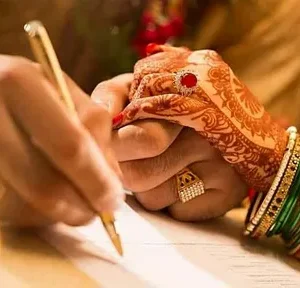Marriage in Islam is based on love, respect, and harmony between spouses. However, when differences become irreconcilable and a marital relationship cannot continue, Islam provides the option of dissolution. For women, the legal right to dissolve marriage through the courts is called Khula in Pakistan Many women, especially those living abroad, have questions about the Khula procedure in Pakistan, its legal framework, required papers, and fees. This article explains everything you need to know in simple language.
Understanding Khula in Pakistan
Khula in Pakistan is the legal right of a Muslim woman to seek dissolution of marriage through a Family Court when she feels she cannot live with her husband within the limits prescribed by Islam. Unlike divorce (talaq), which is initiated by the husband, khula empowers women to approach the court for separation.
The concept of khula is deeply rooted in Khula Pakistan family law and is considered a compassionate relief for women in difficult marriages. It ensures that no woman is forced to remain in a relationship against her will, while still keeping the process balanced and just.
Khula under Pakistani Law
The framework of Khula Pakistani law comes from both Islamic principles and local legislation. The primary statute that governs khula is the Family Courts Act 1964 along with provisions of the Muslim Family Laws Ordinance 1961.
According to these laws:
- A woman has the right to approach the Family Court for khula.
- The court evaluates her application and issues notices to the husband.
- If reconciliation efforts fail, the court may dissolve the marriage.
- The wife may be required to return the dowry (haq mehr) or other benefits received at the time of marriage, depending on the circumstances.
The law aims to balance the rights of both parties while prioritizing justice and fairness.
Khula Procedure in Pakistan
Many people confuse the Khula procedure in Pakistan with talaq, but the two are distinct. The following steps are generally involved in the khula process:
- Filing the Suit – The wife files a khula petition in the Family Court through a lawyer.
- Court Notice to Husband – The court issues notice to the husband, asking him to appear and respond.
- Reconciliation Efforts – The court first tries to reconcile both parties, as Islamic law encourages reconciliation.
- Evidence and Statements – If reconciliation fails, the wife provides her statement explaining why she cannot live with her husband.
- Return of Dowry (if applicable) – The court may order the wife to return her dower (mahr) to the husband.
- Court Decision – Once the court is satisfied, it issues a decree of khula.
- Union Council Confirmation – The decree is then sent to the Union Council, which issues a divorce certificate after 90 days.
The Khula process in Pakistan usually takes 3 to 6 months, depending on the complexity of the case and the court’s schedule.
Khula Papers in Pakistan
To start the khula case, certain documents are necessary. These are commonly referred to as Khula papers in Pakistan. The required papers generally include:
- Copy of Nikah Nama (marriage contract)
- Copy of wife’s CNIC (Computerized National Identity Card)
- Copy of husband’s CNIC (if available)
- Proof of residence (address)
- Khula application drafted by a lawyer
- Any supporting documents (such as evidence of cruelty, neglect, or separation, if relevant)
These papers are submitted with the petition in Family Court. Missing documents, especially the Nikah Nama, can delay the process, so proper preparation is essential.
Khula Fees in Pakistan
One of the most common questions women ask is about the Khula fees in Pakistan. The cost depends on several factors:
- Lawyer’s professional fee – Lawyers usually charge between PKR 30,000 to PKR 100,000, depending on experience and complexity of the case.
- Court expenses – These are generally minimal, often less than PKR 1,000.
- Union Council certificate fee – Around PKR 1,000 to 2,000 for issuing the divorce certificate.
While there is no fixed standard, the overall Khula fees in Pakistan can range between PKR 35,000 to PKR 120,000, depending on the city, the lawyer, and whether the case involves disputes like child custody or property.
Overseas Pakistani Khula
For women living abroad, the process is slightly different but still possible. The term Overseas Pakistani Khula refers to cases where a Pakistani woman residing outside Pakistan seeks separation through the courts in Pakistan.
If the wife is abroad, she can:
- Appoint a lawyer in Pakistan through a power of attorney.
- The lawyer will file and pursue the case on her behalf in the Family Court.
- All proceedings take place in Pakistan, but the wife does not need to be physically present if her lawyer represents her.
- Once khula is granted, the divorce certificate can be sent abroad for her use in immigration, marriage abroad, or other legal matters.
This is a major relief for women who cannot travel back to Pakistan just to pursue court proceedings.
Khula for Overseas Pakistani Women
Another important aspect is Khula for Overseas Pakistani women who are married but living abroad. In such cases:
- They can file for khula in Pakistan even while residing in the UK, USA, Canada, UAE, or other countries.
- The process is managed by their legal representative in Pakistan.
- Once the Family Court grants khula, the decree is legally valid internationally.
- If required, the divorce certificate can be attested by the Ministry of Foreign Affairs (MOFA) and the relevant embassy for international recognition.
For many overseas Pakistanis, this process ensures their marital status is officially updated both in Pakistan and abroad, avoiding future complications.
Why Khula in Pakistan is Important
The option of khula is a cornerstone of women’s rights in Islam and Pakistani law. It prevents women from being trapped in abusive, neglectful, or unhappy marriages. Through Khula Pakistani law, women are given an equal voice in deciding their marital future.
Some important points to note:
- Khula is not automatic; it requires a legal process.
- It protects women from social and legal exploitation.
- It balances the rights of both husband and wife.
- It provides a dignified exit when a marriage cannot continue.
Final Thoughts
The process of Khula in Pakistan may seem overwhelming, but with the right legal guidance, it is straightforward. By understanding the Khula Pakistani law the Khula procedure in Pakistan, and the importance of Khula papers in Pakistan, women can confidently pursue their legal rights.
While the Khula fees in Pakistan vary, the peace of mind and legal protection it provides are invaluable. For those living abroad, the option of Overseas Pakistani Khula and Khula for overseas Pakistani ensures that women do not have to sacrifice their freedom or remain in unwanted marriages simply due to distance.
Khula is not just a legal remedy—it is a right given by Islam and protected by law, allowing women to move forward with dignity and justice.





